Let’s talk about something important today: the signs of poor parenting that can have a serious impact on your little ones. We all strive to be the best parents we can be, but let’s face it, we’re only human.
Sometimes, you might unknowingly engage in certain behaviors and habits that can potentially harm your child in the long run. But, don’t worry, this isn’t about pointing fingers or making you feel guilty. Instead, we hope this article will serve as an opportunity for self-reflection, growth and finding ways to become even better parents.
So, grab a cup of coffee and join us as we explore these signs together. Remember, that being a parent and raising kids is not an easy job, and by recognizing these signs you can work towards creating a more loving and nurturing environment for them.
First, let’s talk a bit about what is poor parenting.
Related: 3 Things Emotionally Intelligent Parents Do
What Is Poor Parenting?
Poor parenting is like a sneaky monster that silently creeps into your life and wreaks havoc on your children’s well-being. We are talking about the kind of parenting that can leave your children feeling confused, unloved and neglected.
When you forget to give them the emotional support they need from you, or you refuse to understand their emotions because they are “children”, that can mess with their self-esteem, cognitive development, happiness, emotional and mental well-being and the way they handle their feelings.
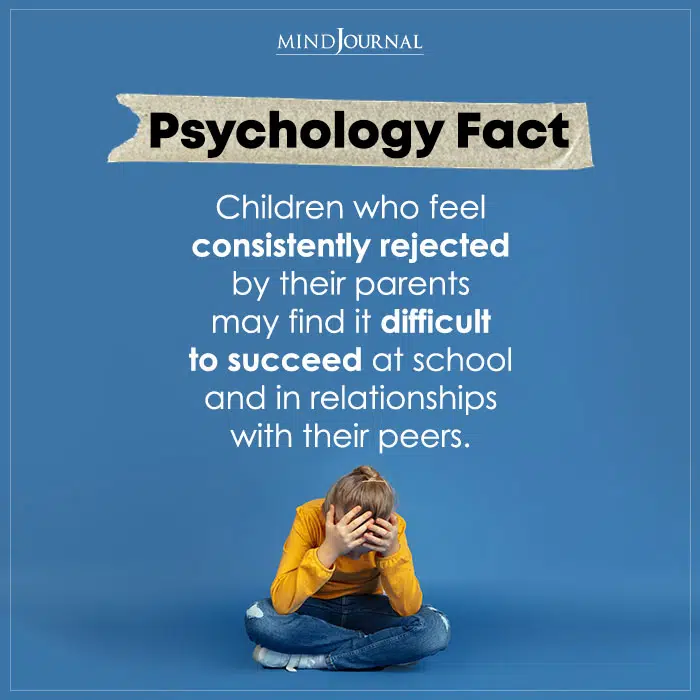
Now that we know what is poor parenting, let’s discuss some of the major signs of poor parenting.
8 Signs Of Poor Parenting That Has A Negative Effect On Children
1. You demand irrevocable and blind obedience from them.
Sometimes it’s important for children to listen to their parents and do as they guide, however, forcing them to obey every order without question prevents them from learning how to think independently and understanding right from wrong.
No one is perfect, including parents. Good, mature parents always encourage their children to make the right decisions on their own.
This means if you as a parent, makes a mistake, they should feel safe and comfortable enough to respectfully disagree and not just comply without thought. Parents who insist their children always agree with them cause more harm than good.
2. You show no respect towards them.
A crucial aspect of healthy parenting involves respecting your child as this lays the groundwork for more thoughtful parenting practices.
Respect must be earned rather than demanded, and that happens only through trust and understanding. You might act polite with your boss who constantly orders you around, but you’d probably criticize them when they’re not around.
However, if your boss treats you well, you will genuinely respect them. It’s the same with children too. When you show respect to your child, it encourages them to respect you in return.
Disrespect towards a child can manifest as a parent consistently prioritizing their own needs over the child’s and ignoring the child’s emotions, and is one of the biggest signs of poor parenting.
3. You manipulate them and use fear to “keep them in line”.
Using fear to control children is a common tactic and one of the most concerning signs of poor parenting. It might make them comply, but that doesn’t mean it’s a good approach.
Tactics like threat of punishment doesn’t help kids learn to change their behaviors on their own. This method might work temporarily because your kid is afraid of you, not because they understand why their actions were wrong.
Later, they might look for ways to avoid consequences without actually changing their behavior. This strategy complicates your role as a parent and ultimately hinders your child from learning how to behave correctly on their own initiative when there’s no threat looming over them.
Related: The Impact Of Dads On Daughters: 15 Signs Of Daddy Issues
4. You withhold love and affection from your child.
Children naturally need love and affection, especially from their parents. If you fail to provide this to your kids, they may seek to get it through other means to satisfy this fundamental requirement.
For instance, they might engage in dangerous behaviors or develop emotional issues such as depression or anxiety.
Many parents do not show physical or verbal affection to their children. This can be confusing for a child, as they often rely on these signs to know if they are loved or not.
5. You shame them, especially in front of others.
What is poor parenting? This!
Scolding children in public can harm their confidence and self-worth significantly. Many parents tend to do this, thinking it’s not a big deal but this is actually one of the most horrible things you can do to your kid.
Some parents openly discuss their children’s mistakes and flaws thinking that this will encourage them to improve. But it actually does the opposite, because you are playing with their self-respect here.
This approach is emotionally harmful and demeaning to the child, effectively showing a lack of respect. By treating children with respect, you teach them how to respect others as well.
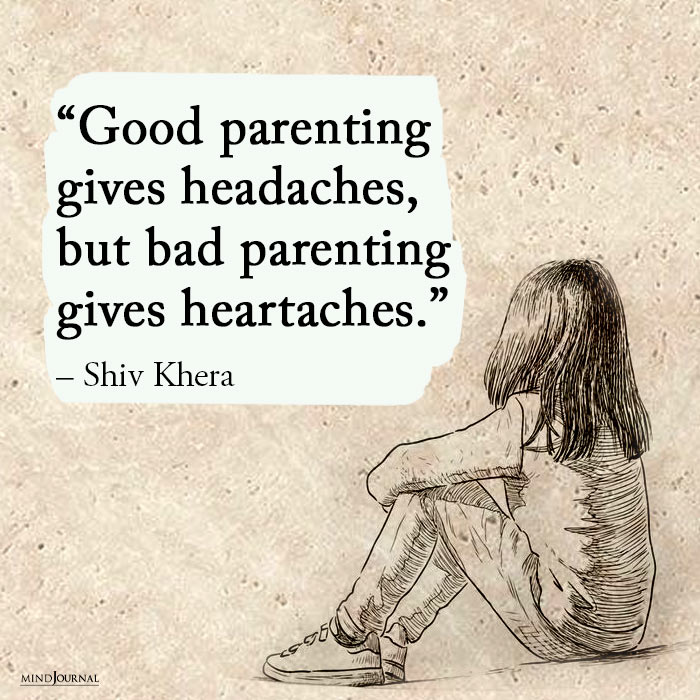
6. You pamper them too much.
One of the subtle signs of poor parenting is this right here. There are many parents out there who mollycoddle their kids by doing everything for them. Even though showing affection to your kids and being protective of them are good things, too much of it is not.
It it important to have limits when it comes to pampering children, and wanting to fulfill their needs and wishes. Permissive parents often overindulge, performing tasks for their children that they are fully capable of doing on their own.
They fear upsetting their children, allowing them to do whatever they want. Kids raised this way may end up feeling entitled and can become dependent because they assume others will handle everything for them.
7. You are overly critical.
We all have dreams and goals that sometimes go unfulfilled. Perhaps you once hoped to be a singer, but you couldn’t fulfill that dream because you had too many responsibilities on your shoulders.
Never ever impose your unfulfilled aspirations on your children, because it’s not your place to do so, to be very honest. You shouldn’t push them to fulfill dreams that were yours, because doing so can damage their self-esteem.
Projecting your desires onto your children without allowing them to make their own choices, and setting unrealistic expectations, does not make them stronger nor does it increase their chances of being successful.
Instead, what is does is it weakens them and diminishes their ability to face life’s challenges effectively.
Related: Emotionally Immature Parents: 7 Signs You Were Raised By One
8. You are a lazy parent.
Raising independent children should not serve as a reason to neglect parental responsibilities.
Lazy parenting practices, such as showing disinterest in engaging with your children, giving them gadgets to keep them quiet, and ignoring their needs because you are reluctant to address difficult emotions or tantrums, can be really detrimental.
While it’s challenging for parents to dedicate constant time and energy to their children, it is crucial to understand that it is your responsibility to come up with ways to make keep them engaged and help them with their overall development.
This sort of an approach prevents children from feeling abandoned or isolated.
Okay! Since we know the signs of poor parenting, let’s discuss what the effects of poor parenting are.
Effects Of Poor Parenting
1. Depression
One of the worst effects of poor parenting is this. Research indicates that negative parenting often leads to a greater risk of depression in children.
Poor parental support, whether emotional or physical, along with the use of physical punishment and harmful ways of expressing anger at home are huge contributing factors, when it comes to depression in children.
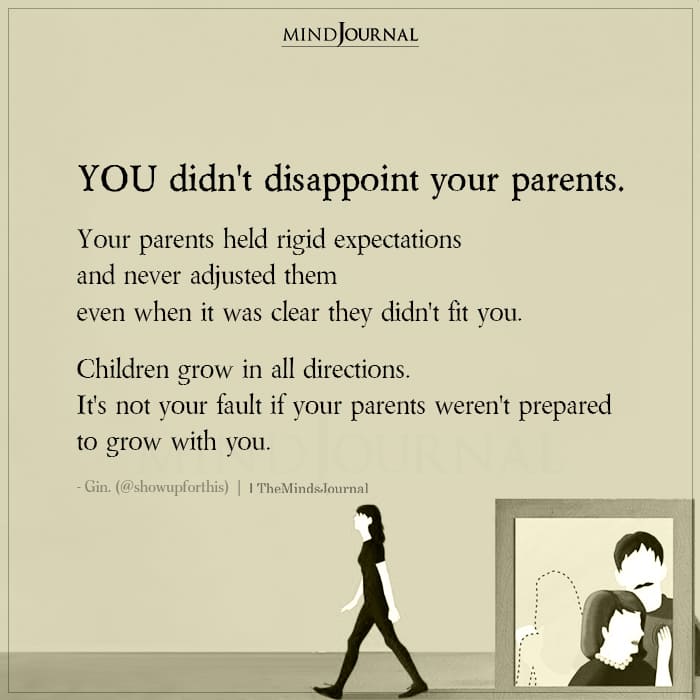
2. Aggressive tendencies.
Studies suggest a link between poor maternal relationships and aggression in young children.
If mothers use harsh tactics and frequently show negative emotions towards their children, it can lead to children suffering from anger issues, as early as their kindergarten years.
3. Behavioral issues.
One of the major effects of poor parenting is behavioral issues. Lack of proper guidance, clear boundaries, and discipline often results in children showing signs of behavioral challenges.
Aggression, and defiance, can lead to issues like poor performance in school, loneliness, and even criminal behavior. If kids don’t receive strong guidance from their parents, they might find it hard to manage their impulses and control themselves.
4. Staying stuck in a cycle of neglect and abuse.
Poor parenting often leads to a cycle of abuse and neglect. Children raised in abusive or neglectful homes might repeat these behaviors when they become parents.
It’s hard to break this cycle because these individuals often don’t learn healthy parenting skills from their own experiences. This repeated pattern can affect not only individual families but also the whole community in general.
5. Struggling with substance abuse.
When parents don’t know how to parent, it increases the likelihood of their kids developing substance abuse disorders.
Without emotional support and proper guidance, their children may use drugs or alcohol to deal with negative feelings like angst, loneliness, sadness and anxiety. This can ruin their health, spoil relationships, and lower their overall quality of life.
6. Displaying inadequate social skills.
One of the long-term effects of poor parenting is their lack of social skills, and their inability to understand how to conduct themselves socially.
If parents don’t show and encourage social skills, kids might find it hard to connect with friends and other people in the community. This could result in them feeling left out or having problems in social and work situations later on.
Related: Marasmus: How A Lack Of Affection In Early Childhood Affects A Child
Takeaway
If you are a parent, and you notice any of these signs of poor parenting in yourself, then it’s high time you change your mindset. How you behave with your kids now can decide the trajectory of their life.
What is poor parenting, according to you? What are some other signs of poor parenting, as per you? Let us know your thoughts in the comments down below!
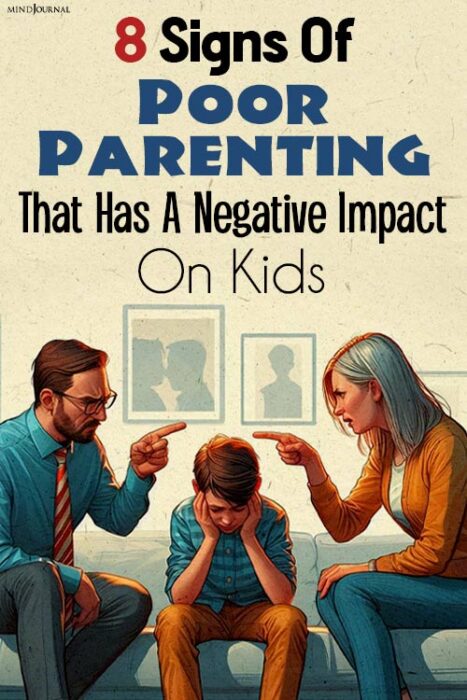
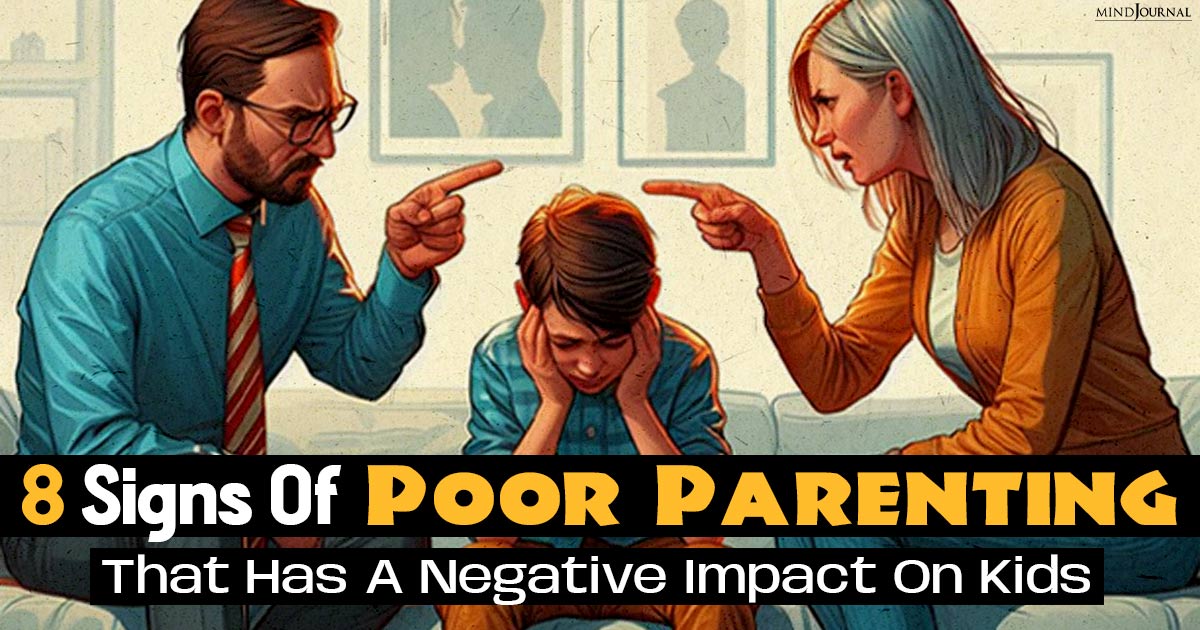







Leave a Reply
You must be logged in to post a comment.